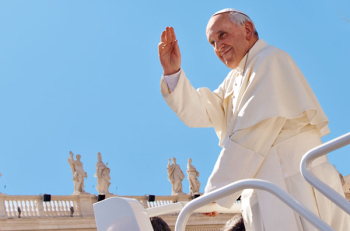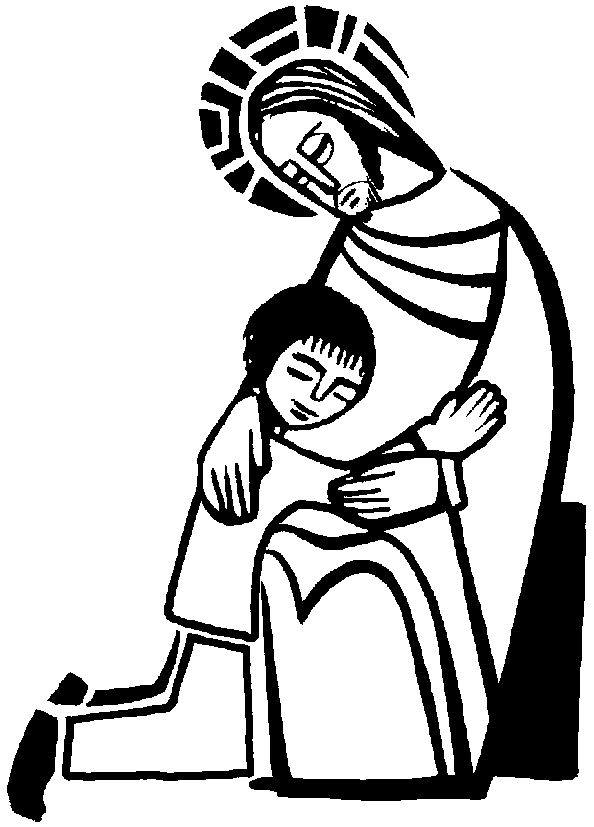The Drudge Report headline after the major networks called the election for Obama was “The Divided States of America.”
The Obama campaign, using the latest in micro-targeting swing voters in swing states, managed a brilliant electoral college blowout victory–but won the popular vote by only 1%. Even in the wake of a reelected President, the complex divisions within our country remain a profound and disconcerting reality. An AP news story before 1 AM on December 7th was headlined, “Obama Wins but Washington Remains Unchanged.” The House remains under Republican control, and Boehner’s idea of an olive branch seems, well, a lot like the plan of the man who didn’t win the Presidential election: get increased revenue through economic growth and “closing loopholes.”
But if that’s the bad news, there is good news as well. Many of us at CMT will take any chance we get to bemoan our hopelessly inadequate liberal/conservative binary, but this election cycle may be the beginning of its end. Republicans must now realign and reinvent themselves if they want to see the inside of the White House again, and, given demographic reality, it almost assuredly means a very different approach to immigration and to racial minorities more generally. However, this shift will take place precisely as libertarians are rising to power in the GOP–and many of them want to push further right on immigration. Nobody can be sure what the realignment will look like, but I suspect–as Jana suggested yesterday–that libertarianism will be a driving force, and in ways which will transcend our exhausted liberal/conservative categories. From abortion, to social programs, to assisted-suicide, to military spending, to defining marriage–many of the most powerful libertarians just want smaller government, full stop. Even some fairly mainstream conservatives, like CNN’s Alex Castellanos, are now chiding Republicans for foolishly embracing big government on “social issues.”
Especially as a bulwark against creeping libertarianism (and, also as Jana said, its close-cousin: moral relativism), the Church has a unique opportunity to help shape the coming political realignment. Far from wishful thinking, David Gibson has highlighted a number of factors which point to this being a genuine opportunity. Consider demography: American Catholics (driven in large part by Hispanics) continue to grow in numbers, while many other demographic groups continue to decline. Catholics are also prominent in government in ways they have never been:
Catholics today dominate the Supreme Court (six of nine justices, with three Jews filling out the bench). The current and immediate past Speakers of the House are practicing Catholics, as [were] both vice-presidential nominees—a historic first.
And this prominence has led to a remarkably substantive discussion of Catholic teaching as it impacts on public policy,
thanks mainly to the election’s focus on the economy, the attendant debate about the balance between the American common good and the American ideal of individualism, and how to translate this balance into actual tax and spend policies. From the social justice tours of the “Nuns on the Bus” to fights over Paul Ryan’s budget plans, classic concepts from Catholic social teaching are now invoked with a regularity that must astound Catholic theologians. Instead of talking to glassy-eyed undergrads in college lecture halls, Catholic scholars and politicians are debating the finer details of papal encyclicals—concepts such as “subsidiarity and solidarity” and “prudential judgment”—on national cable news shows.
Though perhaps because neither campaign was actually interested in traditional life issues, the dignity of very young or very old/sick human persons–especially when such dignity burdens the financial and other choices of powerful others–was not talked about much in the national campaign. But it was very important on the local level, and it ways which demonstrate the opening for Catholic Social Teaching and for a political realignment. Consider that four pro-life Democrats were elected to the US Senate this past Tuesday. Four. Donnelly, Casey, Kane, and Manchin. (In a related story, groups like the Susan B. Anthony list are rethinking their endorsement strategies in light of the Todd Akin disaster.)
Also consider that assisted suicide was rejected by the liberal electorate of Massachusetts. As Michael Sean Winters pointed out, only months ago this measure looked to pass easily, but a coalition led by the Church managed to reverse the momentum:
Here was a victory against a misguided libertarianism that thinks we own our bodies as if they were commodities. It is a huge victory for the Church, which stayed under the radar screen in Massachusetts but was effectively making the case to key constituencies and lining up advocates like Schneck, Mrs. Kennedy and Dionne. It was a close call. Bishops in New York and Connecticut and other states in the liberal Northeast should think about reaching out now to the disability community, the American Medical Association, and others who formed the alliance in Massachusetts to defeat this pernicious proposal.
The Church’s strategy in defeating assisted suicide in Massachusetts is a model, not only for defeating it other places (England has kept it at bay for decades with a similar coalition of disability groups, palliative care physicians, religious organizations, and a few public pro-choice voices), but for its political activity more generally. Our leaders must disentangle themselves from debilitating connections with partisan organizations (and their money) such that they will be free to form and participate in multiple coalitions at the service of the politically diverse aims of Catholic social teaching. Whether on “conservative” issues like abortion and euthanasia, or “liberal” issues like the right to health care and the rights of immigrants, we need the political (and financial) freedom to be able to model what Cardinal O’Malley did: build broad and diverse coalitions in ways that are consistent with a Catholic understanding of protection of, and support for, the most vulnerable.
A few days before the election, one of my friends living in England sent me this BBC story which describes how Catholic Social Teaching is starting to take off in parts of the UK:
For Jon Cruddas, Labour MP for Dagenham and Rainham and the man charged by Labour leader Ed Miliband with writing his party’s general election manifesto, his focus is on the philosophical and ethical critique of free market in the wake of the credit crunch:
“When the music stops in autumn 2008… you sort of search for different traditions to reintroduce them. Different bodies, frameworks, ideas,” he explains. “One of which is Catholic Social Teaching, which I think is a rich theme in order to analyse the contemporary situation.”
….
Catholic Social Teaching is a doctrine well-suited to today’s quest for more ethical businesses, a less overbearing state and a more vibrant and cohesive civil society.
Now, as in 1891, many fear we will not be able to adapt to profound change without dangerous social upheaval. It may not provide easy or even practical answers right now, though it does, at least, seem to be grappling with the right questions.
And for those of us tired of the ritual adversarialism and technocratic wrangling on show in Westminster, there is something rather inspiring about the response of a shrewd operator like Jon Cruddas.
When I ask him whether the ethical foundations of Catholic Social Teaching imply a different way of thinking about politics, he says: “Yes, I do and I see them in different parties. It’s going to be uncomfortable, difficult, but it means that we have to focus in on almost transcending the formal architecture of politics in the national good.”
If they are talking seriously about Catholic Social Teaching performing this role in England, Catholics in America are without excuse.





I disagree that (economic) libertarianism is ascendant within the GOP, although that may be more an expressed hope on my part. The smartest analyses/diagnoses of the shrinking GOP by conservatives (as opposed to liberals suggesting that the GOP become the Democratic Party on a host of issues) is that it lacks a coherent economic message that addresses the anxieties middle America, & that until it can express its political principles in a coherent policy agenda that encompasses more than just tax cuts, it will not form a governing coalition, whoever it chooses to run. Fortunately, there are the seeds of this agenda being discussed by smart young conservatives like Ross Douthat, Reihan Salam, Josh Barro, etc. I think school choice, for example, which has the added benefit of targeting the middle class & low income “minorities”. Suffice it to say, I don’t see economic libertarianism as the most appealing message to those voters. To the extent that working white class voters will be the linchpin of this agenda, I think social conservatism will still have a role to play, definitely with respect to abortion, at least.
I will say this for libertarians, esp. the right-of-center variety – they are the ONLY constituency bringing attention to the drone war & civil liberties issues right now, & have done so consistently since the Bush Administration. See in particular Conor Friedersdorf’s exchanges with Andrew Sullivan on this recently.
As for Catholic Social Teaching “shaping” the coming realignment, here’s hoping we can move beyond the Nuns on the Bus, get Sr. Simone to sit down with someone like Ross Douthat & work through the entitlement crisis facing this country. Until then, appearances on Hardball, Rolling Stone & at the DNC aren’t very encouraging to me.
The Conservative Party in the UK see a connection between CST and their Big Society agenda. David Cameron remarked on this during the Pope’s visit. Peter Scott at Manchester University held a conference on this: http://religionandcivilsociety.com/big-society/ he also invited the North West Regional Green Party to send delegates to the conference.
This past election may be a teaching moment but there seems to be a variety of opinions on the lessons that need to be learned. It is not at all clear whether the problem in this election (for Republicans) was with the positions taken or the way they were perceived by the electorate.
Speaking of perceptions, you suggested that CST has been divided into “conservative” issues such as abortion and euthanasia versus “liberal” issues like the right to health care and the rights of immigrants, but this is inaccurate. While it is (generally) true that liberals support abortion and euthanasia it is unreasonable to suggest that conservatives believe immigrants are without rights or the poor have no right to medical treatment. Inasmuch as the Church is suing over the HHS mandate I’m guessing there is no moral obligation to support Obamacare.
Policy debates are not about who has rights and who doesn’t but about balancing competing rights. Even those favoring abortion don’t reject the idea that a fetus has some rights, just that the rights of the mother are preeminent. The same is true of immigration: immigrants have rights but so does the country receiving them and those rights often conflict. The difference between abortion and immigration is that for the former a specific right (the right to life) is inviolate while for the latter there are generic rights but not specific ones.
A disagreement over the proper balance between competing rights is not a rejection of the existence of those rights and it is incorrect to suggest otherwise.